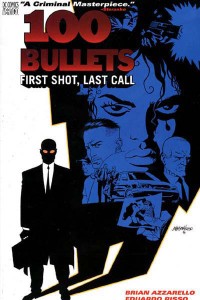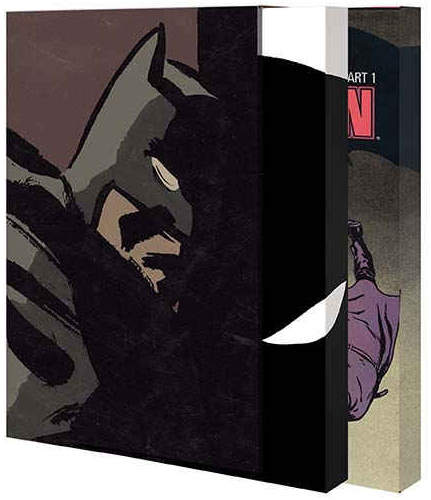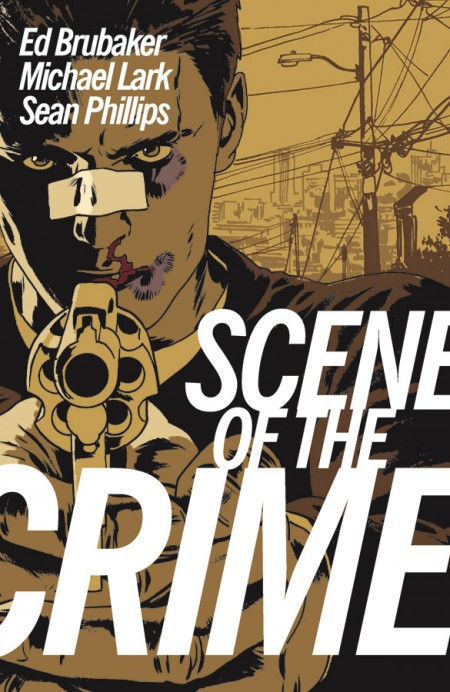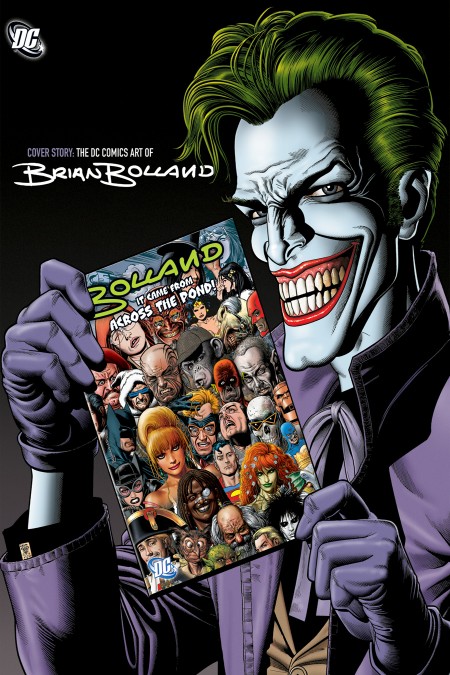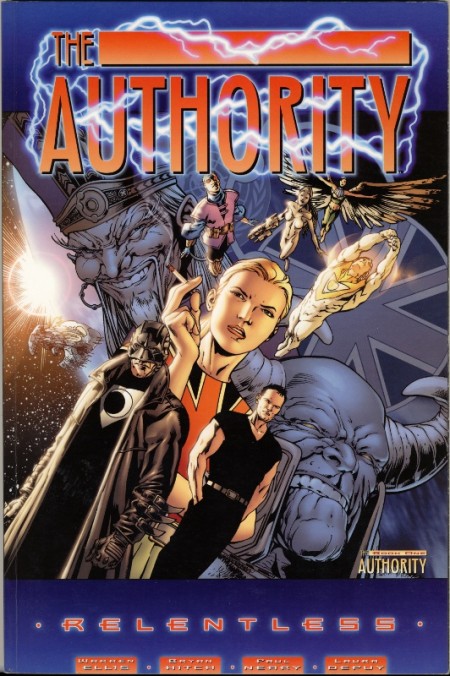I’m late to the party on this title but picked it up off the used trade shelf at my local comic shop. An ongoing series since 1999 with thirteen trade paperbacks available and a very large following, 100 Bullets has been quite the hit. 100 Bullets: First Shot, Last Call collects the first five issues from the series along with a short from Vertigo Winter’s Edge 3. Here’s the publisher’s blurb:
In this dark and intriguing trade paperback, the mysterious Agent Graves approaches ordinary citizens and gives them an opportunity to exact revenge on a person that has wronged them. Offering his clients an attaché case containing proof of the deed and a gun, he guarantees his “clients” full immunity for all of their actions, including murder. In these opening chapters, Dizzy Cordova, a Latina gangbanger who has just finished a prison sentence, is given the chance to avenge her family’s murders, and a downtrodden bartender receives the opportunity to exact revenge against the woman that ruined his life.
The premise is basic and to the point: a guy gives you immunity, a gun and one hundred bullets for you to seek revenge. What occurs is a look into the heart and mind of each person approached with this offer; how they approach, rationalize and exercise this option.
I must live in a completely different society because people I talk to aren’t swearing constantly but it seems North American media portrays the poor, uneducated and impoverished that way. If it’s gritty and dark then everyone has a limited vocabulary. I just don’t see how it’s needed or relevant; I was watching a television series set in ancient Rome and they were swearing away but that’s off the track.
Since the series deals with how people come to grips with this offer I was hoping for more character development. We see what’s happened and happening in their life but not enough motivation and analysis for my taste. The second story arc is about Lee, a former restaurant owner who is now working in a crappy bar. He keeps visiting a strip club and hits on a stripper but it doesn’t go anywhere or add to the story. Why keep bringing the reader back there; are we to take away that financially ruined males can only have a paying relationship with women? I don’t get it.
The art from Eduardo Risso is different and strikes you right away; it’s rounded and soft, reminding me of Tony Harris. It gets the point across and has a nice play of shadow and negative space. I really enjoyed the page composition: panels are shuffled around, skewed and sized to reflect and emphasize the story. All the characters are hard and reflect their inner self: not a lot of pretty people in this book.
It’s an interesting premise and a good starting point but I’m not drawn in enough to swallow the whole series.

